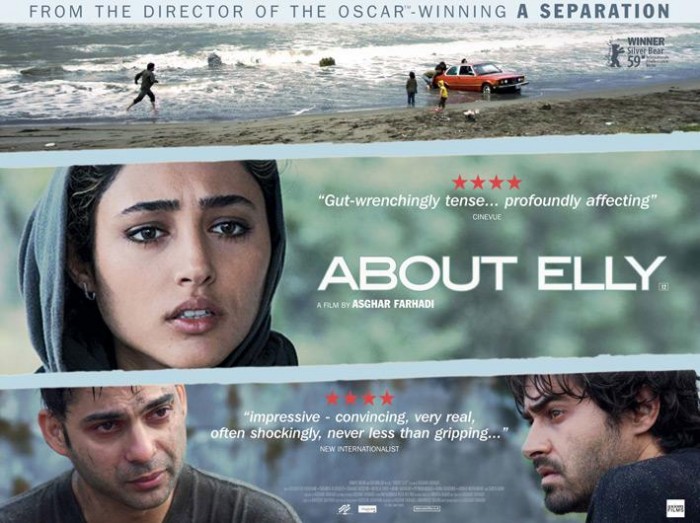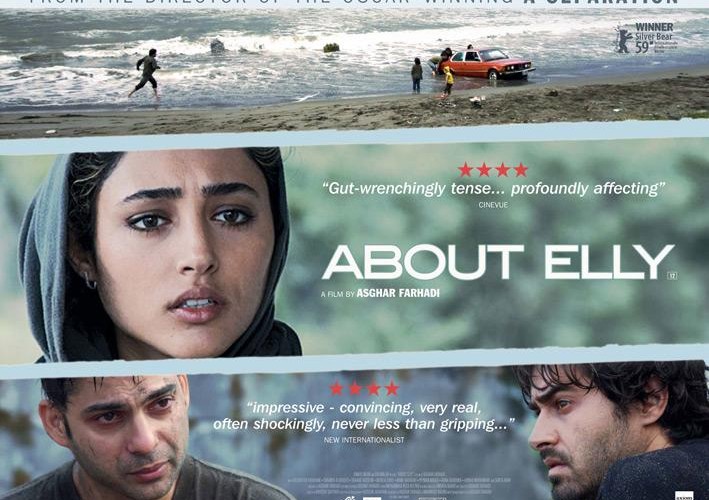
Iranian writer/director Asghar Farhadi excels at creating sympathetic characters whose conflicting viewpoints and actions prove equally justified and understandable. Nonetheless, we as viewers somehow feel we must choose sides. To be clear, Farhadi does not judge his characters, nor does he ask his audiences to, yet the human predilection for assessing blame –- as if one party has to be right and one wrong –- places us in a painful moral and emotional quandary that challenges our own attitudes and values.
Farhadi’s characters tend to be middle-class, well educated and professionally successful. “A Separation,” which won the 2012 Academy Award for Best Foreign-Language Film (as well as the Golden Bear and Ecumenical Jury Prize at the 2011 Berlin International Film Festival), concerns a wife desperate to escape the restrictions of life in Iran and emigrate to France, and her husband, who will not abandon his elderly father, who suffers from Alzheimer’s. The wife is unwilling to wait until her father-in-law dies, but Iran’s religious laws only permit her to leave the country without her husband if she divorces him and, thus, is no longer married.
“A Separation” was followed a year later by “The Past,” which also concerns a husband and wife and their impending divorce, but the similarities pretty much end there. The film is set in France, not Iran, and it is the daughter’s disapproval of her mother’s new boyfriend that provides the main conflict.
Before these two films, however, Farhadi made what was actually his first feature, “About Elly,” for which he was awarded the Silver Bear for best director at the 2009 Berlin International Film Festival. Legalities over rights to the film kept it from being released in the U.S. until now. The film’s setup borrows unabashedly from Michelangelo Antonioni’s classic “L’Avventura:” a group of friends go on a seaside holiday, during which one of them vanishes. The characters and thematic concerns of the two films are quite different, however. In “About Elly,” three married couples, friends from their university days, go on a weekend outing to the beach, along with their young children and a recently divorced friend, Ahmad (Shahab Hosseini), who has been living in Germany the past few years.
The weekend has been organized by Sepideh (the luminous Golshifteh Farahani), a bubbly young wife and mother who is married to the dour, critical Amir (Mani Haghighi). Without telling Amir or the others, Sepideh has also invited her daughter’s shy kindergarten teacher Elly (Taraneh Alidousti) to join them. She is hoping Elly and Ahmad will hit it off, although she has purposely not informed Elly that a single man will be present. Reluctant to come on the trip in the first place, Elly is upset by the revelation and immediately seeks to depart. Sepideh doesn’t take her seriously and insists she stay, going so far as to refuse to drive her into town to catch a bus back to Tehran.
The adults head off in various directions, leaving Elly to keep an eye on the children, who are swimming in the sea. As the winds whip up and the water turns choppy, the emotional intensity rises and a sense of impending doom takes root.
When does a white lie cross the line and become an egregious distortion of the truth? It is a question that haunts “About Elly” –- “haunts” because Sepideh is such a likable character. But do her well-meaning intentions absolve her? Viewers are put in the same painful position as the other characters: reassessing a loved one in light of unintended consequences. A story that begins as a light drama moves into increasingly serious territory and then into the realm of mystery and tragedy.
